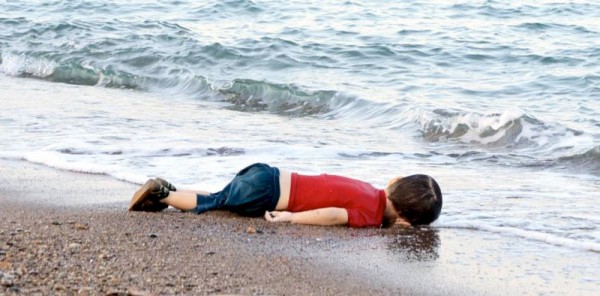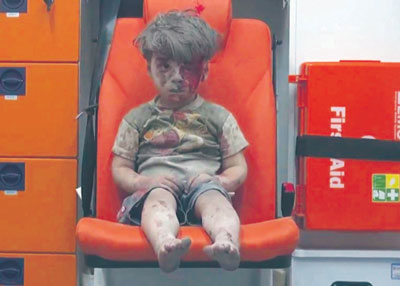My dear brothers and sisters in the Lord,
For over 35 years, the first week after the Epiphany, has been designated as National Migration Week. This year it occurred from Jan. 8 to 14. The Church in the United States, recognizing that it has become again an immigrant Church, must understand a new culture that has grown in the Church. This year’s theme, “Creating a Culture of Encounter,” comes from the first Pentecost homily of our Holy Father, Pope Francis, where he emphasizes the importance of encounter in the Christian faith. He says, “For me, this word is very important. Encounter with others. Why? Because faith is an encounter with Jesus and we must do what Jesus does: encounter others.”
The Lord, Jesus, had one pastoral method: encounter and making friends with people. He seemed to have that ability to encounter others and engage them almost immediately in life-changing situations. Jesus called the Apostles from their work and they followed Him; Peter and Andrew and Matthew. He met the Samaritan Woman at the well and engaged in deep conversation with her. He encountered the two disciples on the way to Emmaus and they too had life-changing experiences. Our call to a greater culture of encounter with immigrants follows the mandate of Jesus in the scene of the Last Judgment when He tells us, “Whoever welcomes a stranger, welcomes me.”
In September of 2015, when Pope Francis spoke to the American Bishops, he encouraged us by saying, “No American institution does more for immigrants than your Christian communities. Now you are facing the stream of Latin immigration which affects many of your dioceses. Not only as the Bishop of Rome, but also as a pastor from the south, I feel the need to thank and encourage you.”
In this context, it is certainly important that our country have a balanced migration policy. There are many elements necessary. First, we must address security of our country and the protection of its citizens. We must also allow for legal entry of migrants needed by our country and those wishing to reunite with family members who have already migrated. Unfortunately, our immigration laws have long-since failed to address our labor and reunification needs. Some type of general regularization of the status of undocumented workers and their families is necessary simultaneously before we take measures to protect our borders from further intrusion, while at the same time protecting the workplace where migrants are drawn.
The Church recognizes the need and the right of states to control migratory movement and to protect the common good of the Nation. However, this must be seen in conjunction with the duty to resolve and regularize the situation, especially of child migrants. This is where our Holy Father has called for a World Day of Prayer for Migrants and Refugees, with specific attention to child migrants, entitled, “Child Migrants, the Vulnerable and the Voiceless.” This day, Jan. 15, is called for at the end of the U.S. Migration Day celebration. The message of Pope Francis follows the message of the Lord Himself who said, “Whoever receives one such child in my name receives me; and whoever receives me, receives not me but Him who sent me” (Mk 9:37; cf Mt 18:5; Lk 9:48; Jn 13:20). The message of this day challenges us to find ways to assist the child migrants in the world.

Two pictures show this to us better than what could be written. One is a photograph of a dead Syrian boy named Alan Kurdi who is shown face down on a beach (above). He was three years old, of Kurdish ethnic background, and drowned in the Mediterranean Sea while his family was trying to reach Europe. Seeing this truly was a wake-up call for our civilization to recognize who are the most vulnerable victims of migratory trends.

The second picture (at right) is of the little Syrian boy named Omran Daqneesh who was rescued in Aleppo and placed on a seat in an ambulance. He was alone, completely silent and seemed to be in a state of shock. His face was caked in dust and his head was bleeding. When he touched his head and looked at his hand to see it covered in blood, the boy was terrified and be began to wipe his hand on the seat, not knowing what else to do. Both of these photos remind us that no child should have to experience these traumatic experiences.
In his message, the Pope goes on to say, “And yet among migrants, children constitute the most vulnerable group, because they face the life ahead of them, they are invisible and voiceless: their precarious situation deprives them of documentation, hiding them from the world’s eyes; the absence of adults to accompany them prevents their voices from being raised and heard.”
How accurately the Holy Father capsulated the unfortunate situation of so many children in our world today. How often has it been said that civilization is always judged on how they treat the most vulnerable among them, be they the elderly or children.
Pope Francis recognizes that the solution to the migration phenomenon in the world today will demand putting out into the deep recesses of our social and national consciences. He said, “Furthermore, we need to work towards protection, integration and long-term solutions.”
These will not be accomplished easily and not without sacrifice and compromise. I ask you to join me in praying as this National Migration Week ends with the Holy Father’s message, especially for the protection of all of God’s children.

I’m really heartbroken to see how these people are treated n neglected by others. My prayers are with them and for those who denie them any help.